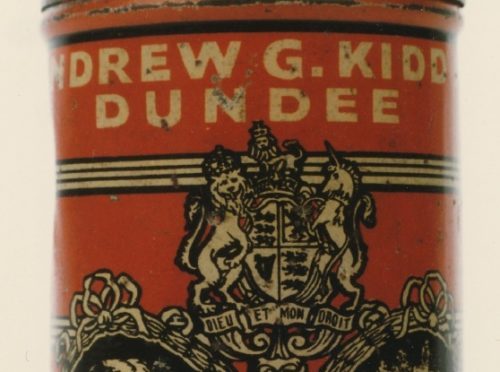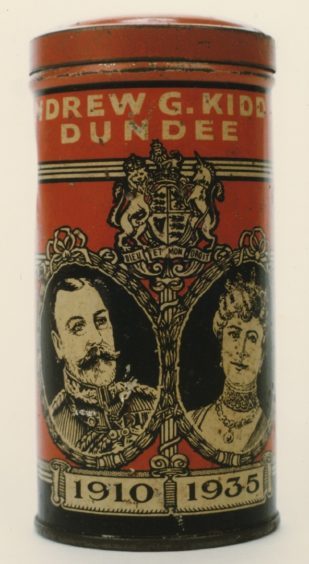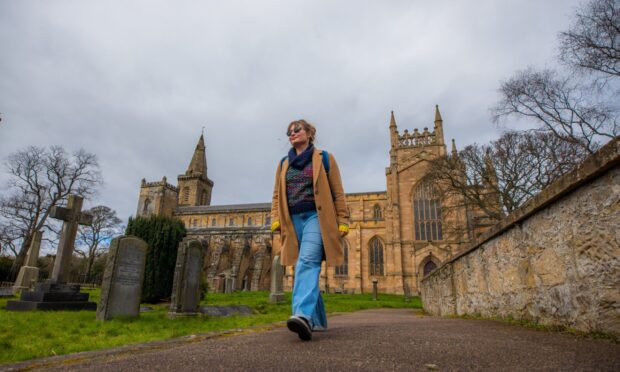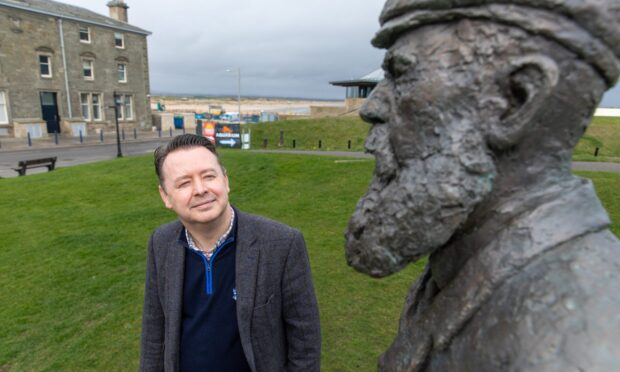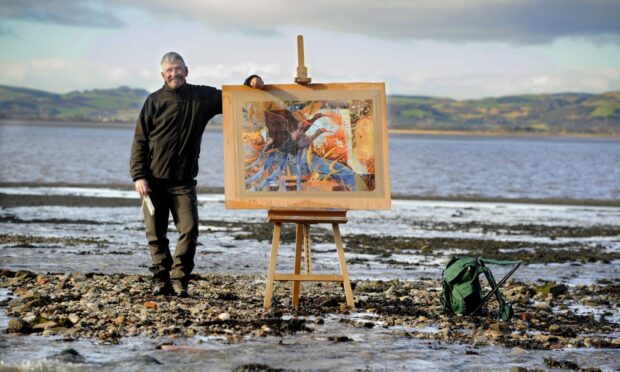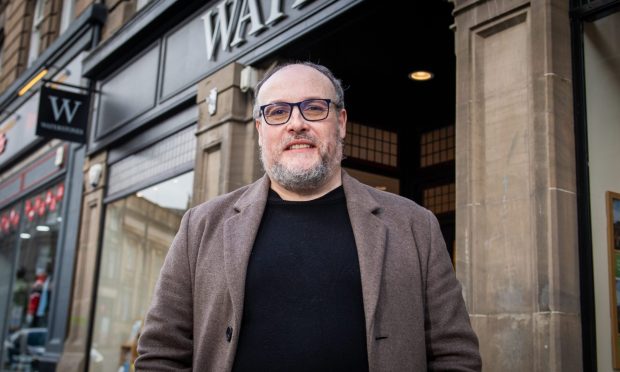WE KNOW our High Streets are suffering. Retailers large and small are pulling down shutters and closing up. The service sector, however, often steps in to fill the gaps – particularly, it seems to me, fast-food outlets, hairdressers, nail bars and coffee shops.
Nimble and responsive traders aren’t a new phenomenon. Away back when, our high street boasted dozens of butchers and bakers and, yes, coffee shops, though these were the sort my mother dragged me to and where scary machines seemed magically to make mounds of beans disappear.
Illustrated is a Dundee-related money box which harks back to the days of a well-kent local trader.
Pressed tinplate money boxes were popularised in the years following the First World War to encourage savings, and gradually they were used to commemorate specific events.
The example shown is a four-inch box bearing the message ‘A Penny Saved is a Penny Gained.’ It’s an example of a ‘still’ tinplate bank, in that it has no mechanical movement. Its charm is in its lithographed details, which includes pretend postal charges and the name of the Dundee baker Andrew G. Kidd.
Andrew G. Kidd was one of Dundee most enlightened employers in the early years of the 20th Century. His daughter told me once that he took the trouble to travel to Liverpool to see the Port Sunlight housing experiment. He then introduced tennis courts and other facilities at his Dundee bakery, which in turn fed a chain of shops.
The box commemorates the silver jubilee of George V in 1935 and I gather they were gifts to workers.
